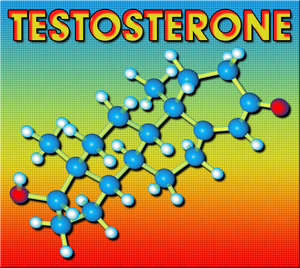Introduction
Hair loss is a common concern among American males, often attributed to genetics, aging, or hormonal changes. However, a less frequently discussed yet significant cause of hair loss is anemia. This article delves into the relationship between anemia and hair loss, offering insights into its prevalence, mechanisms, diagnosis, and management, specifically tailored for American men.
Understanding Anemia
Anemia is a medical condition characterized by a deficiency in the number or quality of red blood cells, leading to reduced oxygen transport to the body's tissues. In the United States, anemia affects millions of men, with causes ranging from nutritional deficiencies, such as iron, vitamin B12, or folate, to chronic diseases and genetic disorders.
The Connection Between Anemia and Hair Loss
The link between anemia and hair loss stems from the crucial role that oxygen plays in the hair growth cycle. Hair follicles require a steady supply of oxygen to support the metabolic processes necessary for hair growth. When anemia leads to decreased oxygen delivery, it can disrupt the normal hair growth cycle, resulting in hair thinning or loss.
In American males, iron deficiency anemia is a common culprit behind hair loss. Iron is essential for the production of hemoglobin, the protein in red blood cells that carries oxygen. When iron levels are low, the body's ability to produce healthy red blood cells diminishes, impacting hair follicle health.
Diagnosing Anemia-Related Hair Loss
For American men experiencing hair loss, it is essential to consider anemia as a potential underlying cause. Diagnosis typically involves a thorough medical history, physical examination, and blood tests to assess hemoglobin levels, iron stores, and other relevant markers.
Symptoms of anemia that may accompany hair loss include fatigue, weakness, pale skin, shortness of breath, and dizziness. If these symptoms are present alongside hair thinning or loss, it is crucial to consult a healthcare professional for a comprehensive evaluation.
Managing Anemia and Promoting Hair Regrowth
Treating anemia-related hair loss in American males involves addressing the underlying cause of the anemia. For iron deficiency anemia, supplementation with iron, often in conjunction with vitamin C to enhance absorption, is a common approach. Dietary modifications to include iron-rich foods, such as red meat, spinach, lentils, and fortified cereals, can also be beneficial.
In cases where anemia is due to other causes, such as vitamin B12 or folate deficiency, appropriate supplementation and dietary adjustments are necessary. Treating any underlying chronic conditions contributing to anemia is also crucial for effective management.
As anemia is addressed, hair regrowth may occur. However, it is important for American men to have realistic expectations, as hair regrowth can be a slow process. In some cases, additional treatments, such as minoxidil or finasteride, may be considered to promote hair regrowth.
Prevention and Awareness
Preventing anemia-related hair loss in American males involves maintaining a balanced diet rich in essential nutrients, particularly iron, vitamin B12, and folate. Regular check-ups with a healthcare provider can help identify and address anemia early, potentially preventing hair loss.
Raising awareness about the connection between anemia and hair loss is crucial. American men should be encouraged to discuss any hair loss concerns with their healthcare providers, who can assess for anemia and other potential causes.
Conclusion
Anemia-induced hair loss is a significant yet often overlooked issue among American males. By understanding the link between anemia and hair loss, men can take proactive steps to address this condition. Through proper diagnosis, treatment, and prevention strategies, American men can work towards maintaining healthy hair and overall well-being.
Contact Us Today For A Free Consultation

- Decoding Follicle Fallout: An Exploration of Hair Loss as a Significant Medical Concern [Last Updated On: March 2nd, 2025] [Originally Added On: March 2nd, 2025]
- Exploring the Link Between Thyroid Disorders and Hair Loss: Mechanisms, Diagnosis, and Treatment Options [Last Updated On: March 3rd, 2025] [Originally Added On: March 3rd, 2025]
- Exploring Surgical Solutions for Male Hair Loss: Techniques and Benefits [Last Updated On: March 4th, 2025] [Originally Added On: March 4th, 2025]
- Comprehensive Guide to Male Hair Loss: Causes, Treatments, and Psychological Effects [Last Updated On: March 5th, 2025] [Originally Added On: March 5th, 2025]
- Understanding Pediatric Hair Loss: Causes, Impact, and Management Strategies [Last Updated On: March 6th, 2025] [Originally Added On: March 6th, 2025]
- Exploring OTC Hair Loss Treatments for Men: Minoxidil, Herbal Supplements, and Efficacy Insights [Last Updated On: March 7th, 2025] [Originally Added On: March 7th, 2025]
- Holistic Approaches for Managing Hair Loss in American Men: Natural Solutions Explored [Last Updated On: March 8th, 2025] [Originally Added On: March 8th, 2025]
- Unveiling the Silent Culprit: The Connection Between Scalp Infections and Male Hair Loss in America [Last Updated On: March 9th, 2025] [Originally Added On: March 9th, 2025]
- Genetics and Hormones: Unraveling Male Pattern Baldness for Effective Treatment and Prevention [Last Updated On: March 9th, 2025] [Originally Added On: March 9th, 2025]
- Exploring Medical Wigs: A Vital Solution for Hair Loss in American Males [Last Updated On: March 10th, 2025] [Originally Added On: March 10th, 2025]
- Unraveling the Link Between Stress and Hair Loss in American Males: A Comprehensive Medical Insight [Last Updated On: March 12th, 2025] [Originally Added On: March 12th, 2025]
- Hormonal Influences on Male Hair Loss: Genetics, Androgens, and Treatment Strategies [Last Updated On: March 13th, 2025] [Originally Added On: March 13th, 2025]
- Unveiling the Truth: A Comprehensive Guide to Hair Loss in American Males [Last Updated On: March 15th, 2025] [Originally Added On: March 15th, 2025]
- Chemotherapy-Induced Hair Loss in American Males: Understanding, Coping, and Recovery Strategies [Last Updated On: March 16th, 2025] [Originally Added On: March 16th, 2025]
- Allergies and Hair Loss in American Males: Understanding the Indirect Connection [Last Updated On: March 17th, 2025] [Originally Added On: March 17th, 2025]
- Understanding Hair Loss in American Men: Causes, Treatments, and Future Hope [Last Updated On: March 17th, 2025] [Originally Added On: March 17th, 2025]
- Hair Loss in American Men: Psychological Impacts and Coping Strategies [Last Updated On: March 18th, 2025] [Originally Added On: March 18th, 2025]
- Monogenic Hair Loss in American Males: Genetics, Diagnosis, and Future Therapies [Last Updated On: March 18th, 2025] [Originally Added On: March 18th, 2025]
- Topical Treatments for Hair Loss: Minoxidil, Finasteride, and Emerging Therapies [Last Updated On: March 19th, 2025] [Originally Added On: March 19th, 2025]
- Alopecia Universalis: Causes, Symptoms, and Treatment Options for American Males [Last Updated On: March 19th, 2025] [Originally Added On: March 19th, 2025]
- 14 FDA-Approved Medications and Therapies for Treating Hair Loss in American Males [Last Updated On: March 20th, 2025] [Originally Added On: March 20th, 2025]
- Understanding Hair Loss: Genetics, Hormones, Age, and Management Strategies for Men [Last Updated On: March 20th, 2025] [Originally Added On: March 20th, 2025]
- Diabetes and Hair Loss in American Males: Causes, Types, and Management Strategies [Last Updated On: March 20th, 2025] [Originally Added On: March 20th, 2025]
- Understanding and Treating Hair Loss in American Men: Causes and Solutions [Last Updated On: March 21st, 2025] [Originally Added On: March 21st, 2025]
- Male Hair Loss: Understanding Causes, Impacts, and Management Strategies [Last Updated On: March 21st, 2025] [Originally Added On: March 21st, 2025]
- Telogen Effluvium in American Males: Causes, Symptoms, and Management Strategies [Last Updated On: March 21st, 2025] [Originally Added On: March 21st, 2025]
- Drug-Induced Hair Loss in American Males: Causes, Medications, and Management Strategies [Last Updated On: March 21st, 2025] [Originally Added On: March 21st, 2025]
- Antidepressants and Hair Loss in American Males: Mechanisms, Management, and Support [Last Updated On: March 22nd, 2025] [Originally Added On: March 22nd, 2025]
- Innovative Hair Loss Solutions for American Men: Technology, Biology, and Lifestyle [Last Updated On: March 22nd, 2025] [Originally Added On: March 22nd, 2025]
- Hair Loss in American Males Linked to Increased Heart Disease Risk: Insights and Management [Last Updated On: March 22nd, 2025] [Originally Added On: March 22nd, 2025]
- Hair Loss in American Males: Causes, Surgical Options, and Future Treatments [Last Updated On: March 23rd, 2025] [Originally Added On: March 23rd, 2025]
- Hair Loss in Young Males: Causes, Impacts, and Treatment Options [Last Updated On: March 23rd, 2025] [Originally Added On: March 23rd, 2025]
- Hair Cloning: A Revolutionary Approach to Permanent Hair Loss Solutions [Last Updated On: March 23rd, 2025] [Originally Added On: March 23rd, 2025]
- LLLT: A Non-Invasive Solution for Male Pattern Baldness in American Men [Last Updated On: March 23rd, 2025] [Originally Added On: March 23rd, 2025]
- Hair Loss in American Males Linked to PCOS: Hormonal Imbalances Explored [Last Updated On: March 24th, 2025] [Originally Added On: March 24th, 2025]
- Autoimmune Disorders and Hair Loss in American Males: Causes, Impacts, and Treatments [Last Updated On: March 24th, 2025] [Originally Added On: March 24th, 2025]
- Steroids and Hair Loss: Understanding Risks and Mitigation Strategies for American Men [Last Updated On: March 24th, 2025] [Originally Added On: March 24th, 2025]
- Revolutionizing Hair Loss Treatment: Stem Cells, Gene Therapy, and AI Innovations [Last Updated On: March 24th, 2025] [Originally Added On: March 24th, 2025]
- Medical Hair Loss in Men: Causes, Effects, and Management Strategies [Last Updated On: March 24th, 2025] [Originally Added On: March 24th, 2025]
- Post-COVID Hair Loss in American Males: Causes, Impacts, and Management Strategies [Last Updated On: March 24th, 2025] [Originally Added On: March 24th, 2025]
- Hair Follicle Miniaturization: Causes, Signs, and Treatments for American Males [Last Updated On: March 25th, 2025] [Originally Added On: March 25th, 2025]
- AI Revolutionizes Male Pattern Baldness Treatment and Diagnosis [Last Updated On: March 25th, 2025] [Originally Added On: March 25th, 2025]
- Hair Extensions and Permanent Hair Loss: Risks and Safe Practices for American Males [Last Updated On: March 25th, 2025] [Originally Added On: March 25th, 2025]
- Understanding and Addressing Receding Hairlines in American Men: Causes and Solutions [Last Updated On: March 25th, 2025] [Originally Added On: March 25th, 2025]
- Male Pattern Baldness: Causes, Treatments, and Future Hope [Last Updated On: March 25th, 2025] [Originally Added On: March 25th, 2025]
- Hair Loss Reversed: Success Stories and Innovative Treatments for American Men [Last Updated On: March 25th, 2025] [Originally Added On: March 25th, 2025]
- Vitamin Deficiencies and Hair Loss in American Males: Causes, Prevention, and Treatment [Last Updated On: March 25th, 2025] [Originally Added On: March 25th, 2025]
- Understanding Hair Loss in Men: Causes, Diagnosis, and Advanced Technologies [Last Updated On: March 26th, 2025] [Originally Added On: March 26th, 2025]
- Shock Loss After Hair Transplants: Causes, Timeline, and Management for American Males [Last Updated On: March 26th, 2025] [Originally Added On: March 26th, 2025]
- Thyroid Disorders and Hair Loss in American Males: Causes, Diagnosis, and Treatment [Last Updated On: March 26th, 2025] [Originally Added On: March 26th, 2025]
- Androgenetic Alopecia: Advances in Diagnosis, Treatment, and Psychological Support for American Men [Last Updated On: March 26th, 2025] [Originally Added On: March 26th, 2025]
- Hair Dyes and Hair Loss: Risks, Studies, and Safety Tips for American Men [Last Updated On: March 26th, 2025] [Originally Added On: March 26th, 2025]
- Aromatherapy for Hair Loss in American Males: Benefits and Practical Applications [Last Updated On: March 26th, 2025] [Originally Added On: March 26th, 2025]
- Chemotherapy-Induced Hair Loss in American Males: Causes, Strategies, and Future Hope [Last Updated On: March 26th, 2025] [Originally Added On: March 26th, 2025]
- Anabolic Steroids and Hair Loss: Mechanisms, Prevalence, and Management in American Males [Last Updated On: March 26th, 2025] [Originally Added On: March 26th, 2025]
- Managing Hair Loss in American Males: Causes, Diagnosis, and Treatment Strategies [Last Updated On: March 26th, 2025] [Originally Added On: March 26th, 2025]
- Immune System Disorders and Hair Loss in American Males: Causes, Mechanisms, and Management [Last Updated On: March 27th, 2025] [Originally Added On: March 27th, 2025]
- PRP Therapy: A Promising Solution for Hair Loss in American Men [Last Updated On: March 27th, 2025] [Originally Added On: March 27th, 2025]
- Scalp Psoriasis and Hair Loss in American Males: Understanding and Managing the Impact [Last Updated On: March 27th, 2025] [Originally Added On: March 27th, 2025]
- Postpartum Hair Loss in American Males: Causes, Symptoms, and Management Strategies [Last Updated On: March 28th, 2025] [Originally Added On: March 28th, 2025]
- Hair Loss in American Men: Societal Views vs. Medical Facts and Treatments [Last Updated On: March 28th, 2025] [Originally Added On: March 28th, 2025]
- High Blood Pressure and Hair Loss: Managing Dual Health Concerns in American Males [Last Updated On: March 30th, 2025] [Originally Added On: March 30th, 2025]
- Trichotillomania in American Males: Challenges, Symptoms, and Treatment Strategies [Last Updated On: March 30th, 2025] [Originally Added On: March 30th, 2025]
Word Count: 579





















